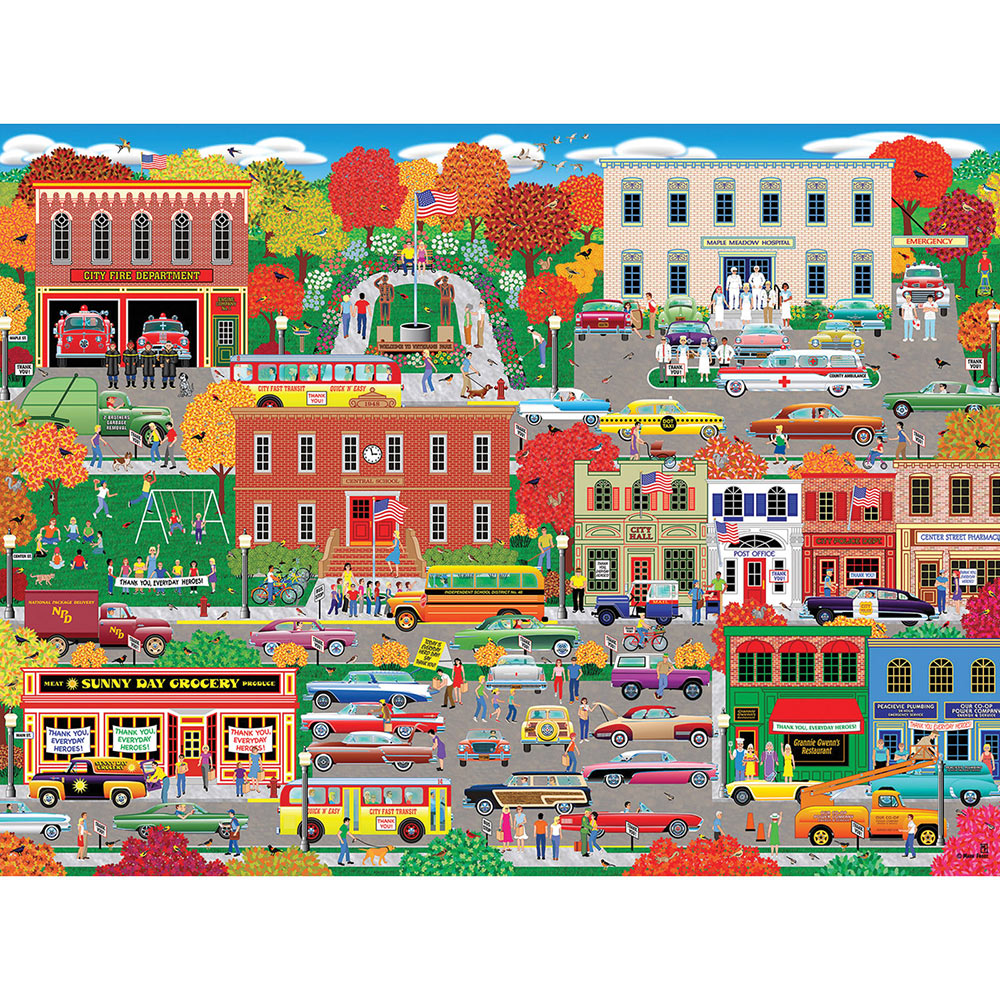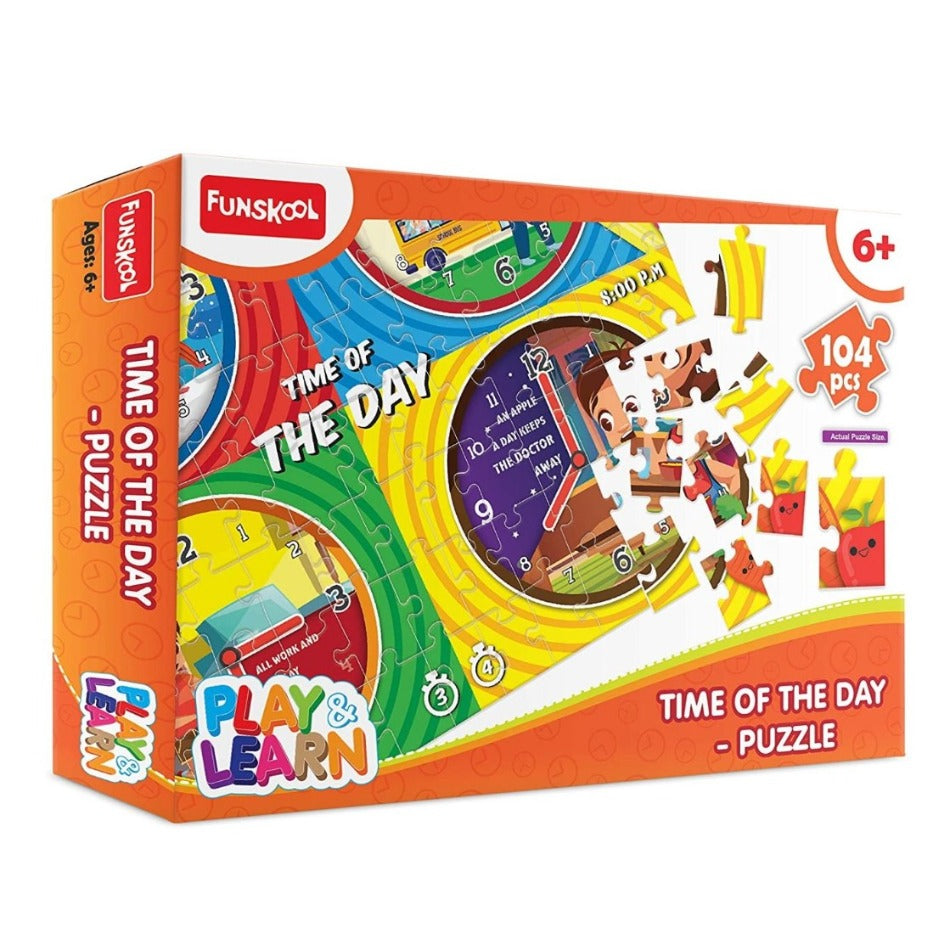The Fascinating World of Everyday Puzzles
Everyday puzzles captivate minds with their variety and challenge. They turn day-to-day activities into opportunities for stimulation and learning. From crosswords with breakfast to Sudoku on the train, these puzzles entertain while sharpening the brain. People worldwide delight in solving these intricate problems. They provide not just amusement but also a sense of achievement once solved.
![]()
Puzzles come in many forms. They range from the tangible jigsaw to brainteasers and riddles. Their diversity makes them accessible to all, regardless of age or interest. Each type trains the brain in different ways. This contributes to a well-rounded intellectual experience. Everyday puzzles serve as mental gyms. They keep the brain active and engaged throughout a lifetime.
The beauty of these puzzles lies in their ubiquity. You find them in newspapers, on apps, and even in social interactions. They grow with technology and culture, staying relevant and appealing to new generations. As we face new and more complex puzzles, we learn to adapt our thinking. This builds problem-solving skills useful well beyond the puzzle itself.
Incorporating puzzles into daily life is both easy and beneficial. They can fill idle moments or break up a monotonous day. Moreover, they can become social affairs, with friends and family gathering to solve a shared challenge. The joys of everyday puzzles thus extend from personal development to social bonding. In essence, everyday puzzles are more than just games; they are tools for enrichment that beckon us to explore, learn, and grow.

Key Benefits of Solving Puzzles Regularly
Engaging in everyday puzzles regularly offers a multitude of benefits that can enhance one’s life in various ways. To begin with, puzzle-solving is a brain-boosting activity. It stimulates cognitive functions, leading to improved memory and problem-solving skills. Consistent practice can keep the brain sharp and could potentially delay the onset of cognitive decline as one ages.
Another significant advantage is the reduction of stress. Concentrating on puzzles allows individuals to shift focus away from daily worries and tensions. This sort of mental break rejuvenates the mind, much like a restful nap.
Puzzle-solving also develops patience and persistence. Completing puzzles, especially complex ones, requires a methodical approach over time. This can instill a sense of discipline and enhance the ability to concentrate on tasks.
Additionally, regular engagement with puzzles can boost mood and self-esteem. The sense of accomplishment when solving a puzzle is uplifting. It reinforces the notion that effort leads to success, which can be motivating in other areas of life.
Moreover, puzzles can be a source of social interaction and bonding. Working on a puzzle with others encourages teamwork and communication. It’s an opportunity to share in the satisfaction of a collective achievement.
Lastly, everyday puzzles promote lifelong learning. They often require knowledge or skills that may not be part of one’s daily routine. Therefore, solving puzzles can lead to the discovery of new information and the desire for continuous intellectual growth.
Incorporating puzzles into your routine is not just entertaining; it’s an investment in your mental, emotional, and social well-being. By engaging in this simple activity, you are setting yourself up for a richer, more fulfilling life experience.
Types of Puzzles to Incorporate Into Your Daily Routine
When considering everyday puzzles to add into your daily routine, variety is key. Each type of puzzle challenges the brain in unique ways. Here are some puzzles you might incorporate into your life:
- Crossword Puzzles: Start your morning with a crossword puzzle from the newspaper or an app. This type of puzzle tests your vocabulary and trivia knowledge.
- Sudoku: A number game that enhances logic and pattern recognition. Sudoku puzzles are perfect for a quick mental workout.
- Jigsaw Puzzles: Great for a relaxing evening, jigsaw puzzles help with visual perception and patience.
- Brain Teasers: Try a few brain teasers during your coffee break to boost creative thinking and problem-solving skills.
- Word Searches: Wind down before bed with a word search puzzle. This can be a calming activity that also reinforces word recognition.
- Logic Puzzles: Stretch your deductive reasoning skills with logic puzzles that come in various forms and levels of difficulty.
- Riddles: Share riddles with friends or family to spark joy and encourage lateral thinking.
Incorporating everyday puzzles into your routine can make the day more stimulating and rewarding. Each type offers distinct advantages, so mix and match to keep things fresh. Beyond entertainment, these puzzles sharpen your mind and provide valuable cognitive exercise. So, plan out your puzzle time and start reaping the benefits that everyday puzzles have to offer.

Cognitive Skills Enhanced by Puzzle-Solving
Everyday puzzles offer more than entertainment; they are powerful tools for cognitive enhancement. Regular engagement with puzzles could result in the improvement of various cognitive skills. Here is an overview of the mental faculties that are honed through consistent puzzle-solving:
- Memory: Puzzles like crosswords and memory games strengthen recall by challenging you to remember details.
- Problem-Solving: Engaging in puzzles promotes a step-by-step approach to challenges, enhancing your problem-solving strategies.
- Attention to Detail: Jigsaw puzzles and brain teasers require intense focus, fine-tuning your attention to small details.
- Logical Thinking: Sudoku and logic puzzles demand you to apply reasoning, fostering your capacity for logical thinking.
- Visual-Spatial Reasoning: Navigating through maze puzzles or assembling jigsaw pieces improves your ability to judge spatial relationships.
- Concentration: All puzzles encourage prolonged attention, thus improving your ability to concentrate over extended periods.
- Processing Speed: The quick identification of patterns in word searches or speed-oriented puzzle games sharpens your processing speed.
Everyday puzzles can significantly affect these cognitive domains, contributing to a nimble and resilient brain. By solving different types of puzzles, we challenge our minds to develop and maintain these crucial skills. This can lead to cognitive benefits that permeate every aspect of life, from academic performance to handling complex tasks at work. Encouraging the regular use of everyday puzzles is a delightful and effective way to boost mental faculties crucial for personal and professional success.
Tips and Strategies for Effective Puzzle Solving
To master everyday puzzles, it’s crucial to adopt effective strategies that can streamline the solving process. Here are some valuable tips to help you become a more proficient puzzle solver:
- Start Simple: Begin with puzzles that are within your skill level. This builds confidence and sets a foundation for more complex challenges.
- Identify Patterns: Look for patterns or commonalities in puzzles to solve them faster. Recognizing these can guide your next moves.
- Break It Down: Divide the puzzle into smaller sections. Tackle each part one at a time for a structured approach.
- Stay Patient: Puzzles can be tough, but patience is key. Take breaks if you need to, then return with a clear mind.
- Practice Regularly: Like any skill, the more you practice puzzle-solving, the better you get. Set aside time each day for practice.
- Exercise Your Memory: Keep your memory sharp by recalling past puzzle patterns and solutions you have encountered.
- Change Approaches: If stuck, try a different strategy. Sometimes a new perspective can reveal the solution.
- Take Notes: Jot down clues or ideas. Writing can help you keep track of what you have worked out and what remains.
- Stay Focused: Eliminate distractions to maintain concentration. A focused mind solves puzzles more efficiently.
- Use Resources: Don’t hesitate to use puzzle-solving apps or tools. They can offer hints or ways to practice and improve.
Applying these strategies can enhance your puzzle-solving proficiency. Everyday puzzles become less daunting and more enjoyable when approached with these tactics. Remember, the goal is not just to complete the puzzle but to develop and reinforce cognitive skills through fun and engaging activities. Keep challenging yourself and enjoy the journey of continuous improvement and discovery.
Puzzle-Solving Techniques for Different Age Groups
Every age group can benefit from the stimulating effects of everyday puzzles. While the approach to puzzle-solving may vary across different ages, the overall benefits remain consistent. Here, we explore tailored techniques for various age groups to maximize their puzzle-solving experiences.
- For Young Children: Introduce simple jigsaw puzzles and basic word searches. These can help with shape recognition and vocabulary building. Encourage children to use colorful puzzles and engage with easy-to-handle pieces.
- School-Aged Kids: Challenge them with more complex jigsaws, crosswords, and brain teasers. These puzzles enhance problem-solving skills and academic learning.
- Teenagers: Introduce Sudoku and advanced logic puzzles that require more strategic thinking. These help teens develop advanced reasoning and focus.
- Adults: Adults can enjoy the full range of puzzles, including sophisticated crossword puzzles and brain games that target memory and processing speed. These activities are crucial to maintain mental sharpness.
- Seniors: Offer crosswords, word searches, and memory games, which are not only enjoyable but also support cognitive function. These puzzles can contribute to a sense of accomplishment and well-being.
By selecting age-appropriate puzzles, participants can enjoy and progress in their puzzle-solving journey. Solving everyday puzzles should be a fun and rewarding experience that simultaneously fosters cognitive development at any stage of life.
Incorporating Puzzle Time into Your Daily Life
Fitting everyday puzzles into your daily life can be simple and fun. Here’s how to make puzzle time a part of your everyday routine:
- Set Aside Time: Choose a specific time each day for puzzles, like morning or lunch breaks. Consistency helps build a habit.
- Carry Puzzles with You: Keep a puzzle book or app on your phone handy for quick access anytime, anywhere.
- Involve Others: Turn puzzle-solving into a group activity with friends or family to make it more social and enjoyable.
- Incorporate with Other Activities: Combine puzzles with a daily activity, such as having a crossword with your coffee.
- Set Goals: Challenge yourself with puzzle goals, like completing a Sudoku in under 10 minutes.
- Relax with Puzzles: Use puzzles as a relaxing wind-down activity before bed instead of screens.
- Educational Opportunities: Choose puzzles that teach new words or concepts to add learning into your day.
- Switch It Up: Rotate different types of puzzles to keep your brain engaged and avoid monotony.
By weaving puzzles into the fabric of your daily life, you foster cognitive skills and enjoy endless entertainment. Everyday puzzles aren’t just a pastime but a lifestyle choice that keeps your mind sharp and spirited.
Advanced Puzzles – Taking Your Skills to the Next Level
Once you’ve grown comfortable with everyday puzzles, it’s time to challenge yourself further. Advanced puzzles offer the next step in honing your puzzle-solving mastery. They push your cognitive abilities to their limits, and reward you with even greater satisfaction. Here’s how you can take your skills to the next level:
- Try Cryptic Crosswords: These puzzles demand a higher level of thinking. You’ll decode clues and play with word meanings.
- Explore Chess Problems: Chess offers endless strategic depth. Tackle set problems to sharpen your foresight and planning.
- Delve into Nonograms: Also known as Picross, these logic puzzles combine number skills with visual creativity.
- Solve Rubik’s Cubes: The classic puzzle is not just about algorithms; it’s a workout for pattern recognition and memory.
- Attempt Mathematical Puzzles: Challenge yourself with puzzles that require mathematical solutions. Euler’s problems are a good start.
- Play Strategy Games: Games like ‘Go’ or ‘Mahjong’ involve complex decision-making and can be great tools for advanced strategic learning.
As you progress with these advanced puzzles, remember that the journey is as important as the destination. Embrace the challenges they present and appreciate the mental growth they provide. Advance at your own pace and enjoy the new heights your puzzle-solving skills will take you to.
